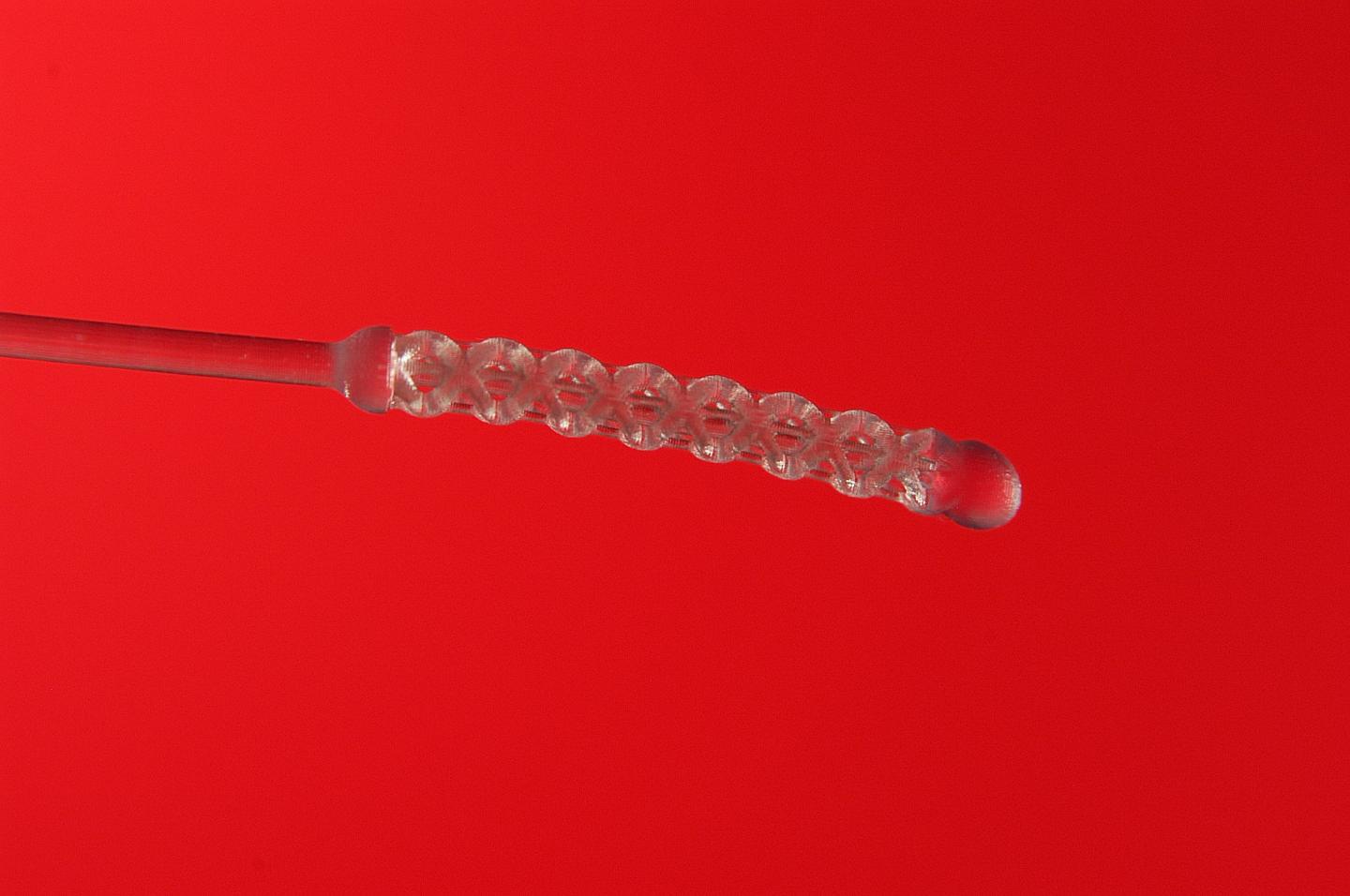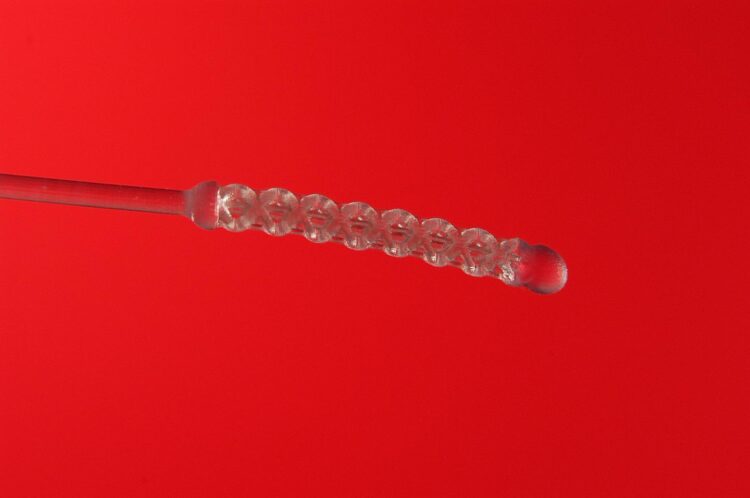
Credit: UofL
Innovation at the University of Louisville involving multiple departments at the university has led to a promising solution for the shortage of swabs in COVID-19 test kits. In response to a request from the Commonwealth of Kentucky, UofL’s Additive Manufacturing Institute of Science & Technology (AMIST), along with faculty and students in the Schools of Dentistry, Engineering and Medicine have created a 3D printed swab made of a pliable resin material.
“This effort adds to the list of our response during the pandemic, including 3D printed face shields, respirators and ventilators being manufactured through the expertise of our institute. We hope our work will provide the necessary tools for Kentucky, as well as our local health care facilities,” said Ed Tackett, director of workforce development at AMIST, which is part of the J.B. Speed School of Engineering.
The School of Dentistry operates a 3D print lab used in prosthodontic fabrication of dental implants, crowns and even jaw bones.
Gerald “Jerry” T. Grant, DMD, MS, is interim assistant dean of Advanced Technologies and Innovation at the School of Dentistry, and associate director at AMIST. He collaborated with business partners Envisiontech on a resin to meet the material requirements for the swab, and NewPro3D to help develop a faster printing time. Grant’s goal is to print 385 swabs in less than an hour, and then to make the manufacturing processes available to companies within the state for large-scale production.
Grant brings a wealth of knowledge from his military experience where he developed the 3-D Medical Applications Center at Walter Reed National Medical Center, Bethesda, providing support to medical and dental commands in digital design and 3D printing in patient custom reconstruction and devices.
He compares the urgent need for items like face shields and swabs to the issues he faced in the military.
“The number of injuries could not be addressed with the conventional methods of fabrication and we had to develop a digital solution to design, and eventually a direct printing solution to fabricate.
“3D printing can provide an unique opportunity to address urgent needs – this is the reason I came to UofL to work with teams of engineers, physicians, dentists, artists and others to address situations much like we have now,” Grant said.
Grant said students and prosthodontic residents have been significant contributors to the project’s success.
Justin Gillham, J.B. Speed School of Engineering undergraduate mechanical engineering student and member of the AMIST co-op, worked closely with Tackett and Grant on the design.
“Once I had a design complete, I sent it to Ed Tackett and Dr. Grant to print. With their feedback, I could change my design within minutes and have a new swab ready to be tested. In just a few days, we went through many designs that we could then test and change almost immediately,” Gillham said.
George Pantalos, PhD, professor, Department of Cardiovascular and Thoracic Surgery, and professor, Department of Biomedical Engineering, sterilized and tested the swabs at the UofL Cardiovascular Innovation Institute, ensuring they could absorb enough solution material to be viable.
Bioengineering students Sienna Shacklette and Clara Jones are working under the direction of Pantalos to assemble COVID-19 test kits. Just last week they compiled more than 700 kits which included biohazard specimen bags, labels, sample vials filled with viral transport media, and commercially available swabs that are in short supply. The kits were immediately sent throughout Kentucky to test individuals for COVID-19.
Shacklette and Jones also have prepared test kits with 3D printed swabs that will be used in a validation clinical trial to be conducted in collaboration with Forest Arnold, DO, MSc, associate professor, Division of Infectious Diseases, and
UofL Health – UofL Hospital epidemiologist.
“Although we are limited by the number of swabs available, we are not limited by the enthusiastic effort of our students,” Pantalos said.
Grant said he is amazed at the responsiveness of everyone involved in the project.
“We have been able to move a project in just over a week to possible patient trials, something that would normally have been a much longer process. The development of this swab will benefit the people of Kentucky as the supply access to commercial swabs remains inadequate, and a solution to allow for more timely testing becomes imperative,” he said.
Clinical trials of the 3D printed swabs are expected to begin by the end of this week. With favorable results, it is anticipated they will be ready for use widely as early as the beginning of May.
###
Media Contact
Julie Heflin
[email protected]
Original Source
https:/





